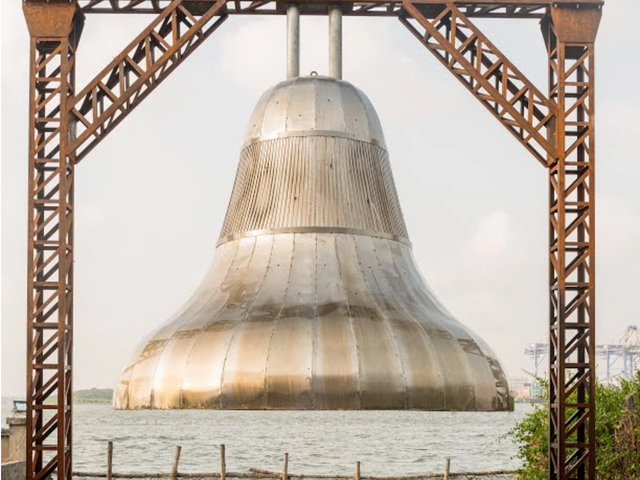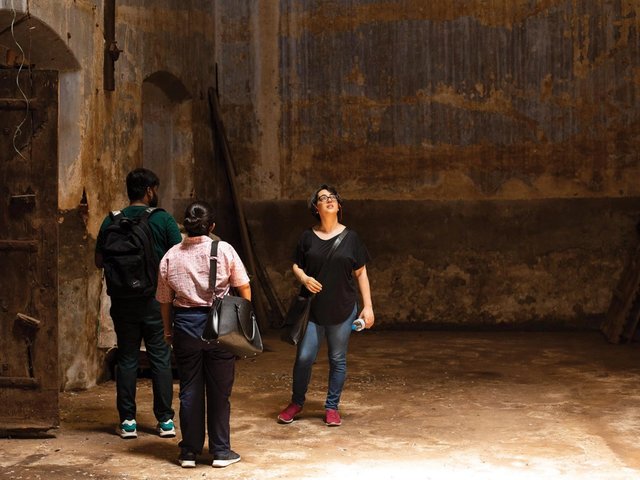The organisers of India's largest contemporary art exhibition the Kochi-Muziris Biennale have announced the postponement of its fifth edition, just hours before it was due to open to the public. The show was to begin in full today and run until 10 April 2023. It will now open on 23 December "due to a variety of organisational challenges, compounded by external factors", the Kochi Biennale Foundation (KBF) team said via social media.
In a statement to The Art Newspaper, KBF's founder-president Bose Krishnamachari says issues include "adverse weather, a lack of timely access to our main venue, shipping delays, higher travel and logistical costs".
The decision to postpone was made following a meeting held yesterday afternoon among the biennial's organisers and its participating artists, who concluded that the exhibition should open only once all works are fully installed. Currently, three venues for the biennial's central exhibition In Our Veins Flow Ink and Fire, curated this year by the Singaporean-Indian artist Shubigi Rao, are not yet ready. These are Aspinwall House, Anand Warehouse and Pepper House. A number of related exhibitions and programmes, as well as events for patrons, press and VIPs, will still take place in Kochi this week.
This edition of the biennial has already faced major delays and hurdles. It was originally due to open in 2020 and has been postponed for two consecutive years due to Covid-19.
Organisers decline to comment as to whether the "lack of timely access" to the main venue is related to recent attempts by the government of Kerala, which partially funds the biennial, to purchase Aspinwall House, a large heritage property that is regularly used as a venue for the biennial, from the commercial property developers DLF. A deal reportedly fell through last week due to a disagreement over the asking price. "We do not want to interfere or comment on the negotiations between the government of Kerala and DLF. KBF has independently negotiated a lease agreement with DLF for the use of the Kochi-Muziris Biennale," a spokesperson tells The Art Newspaper.
Among the other reasons organisers cite for the postponement is a recent cyclone in the neighbouring state of Tamil Nadu, in the country's south-east, which has caused heavy rains and winds in Kochi.




